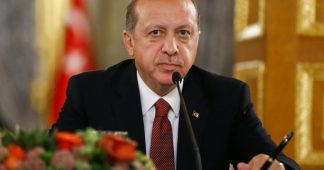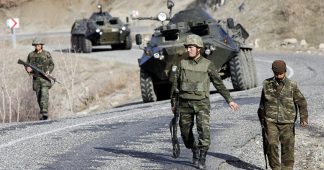By Aaron Stein
Just days after the U.S. presidential election, newspapers allied with the ruling Justice and Development Party (AKP) published stories alleging that elements of the U.S. government would conspire to prevent Donald Trump from governing. Trump, the consensus in the pro-government media held, was a better choice for Turkey: As a billionaire who is outside of the Washington mainstream, he is above influence from members of the Gulen Movement, some of whom gave money to Hillary Clinton’s super-PAC.
The AKP’s de-facto leader, President Recep Tayyip Erdogan, was among the first to congratulate President-elect Trump, reportedly inviting him to Turkey to “reset” a relationship filled with tension over Turkish authoritarianism and disagreements over Syria. Trump has signaled that the incoming administration will make considerable changesto the current American strategy in Syria. In preparation, the AKP is busy creating “facts on the ground” for the incoming administration. Turkey is using military force to achieve two interlinked objectives: slow the offensive for Raqqa and take the city of Al-Bab, in order to prevent the linking up of Kurdish-held territory.
These twin efforts have prompted considerable diplomatic outreach to Turkey, both to gauge Ankara’s ultimate intent and to ensure that Turkey and its allies don’t clash too heavily with the Syrian Kurds, an outcome that could spark an expansion of the Syrian civil conflict and harm the U.S.-led air war. These diplomatic efforts, however, only manage a problem that continues to fester. The incoming Trump administration will inherit an air and ground war against the Islamic State that is going well, but a Syrian civil conflict that has grown more complex, partly as a result of Islamic State losing territory.











